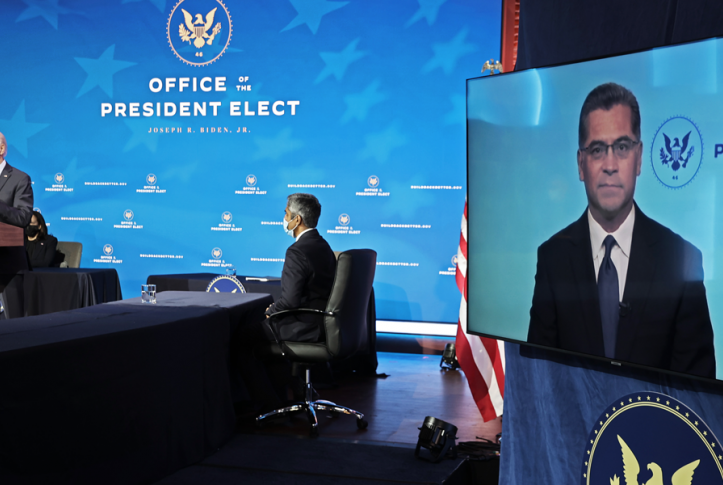As the nation’s largest public insurer, Medicaid is foundational to the U.S. health system. This has been underscored by the COVID-19 pandemic, during which Medicaid has been the nation’s largest public health first responder and an insurer of more than 75 million children and adults. Even as President-elect Biden and Congress enter an intense period of legislative reform discussions, federal law gives administration officials broad powers to enable states to enhance Medicaid’s performance while also unwinding policies pursued by the Trump administration. The following areas merit near-term focus.
Broaden the Use of 1115 Demonstration Authority in Pandemic Response
Medicaid demonstrations in times of emergency are not uncommon; there is much to learn from comprehensive and deliberate efforts to use Section 1115 powers to test innovations in times of heightened need. Section 1115 allows experimentation with changes in eligibility, provider payment structures, scope of coverage, and service delivery reforms. This could include waiving 1115’s normal budget neutrality principle to allow more wide-ranging experimentation. It will be critical to include well-evaluated demonstrations that last beyond the end of the official public health emergency period. Even with wide vaccine availability, COVID-19’s terrible toll on the poorest Americans likely will endure.
Ending Medicaid Work Requirement Experiments
In a surprising move, the U.S. Supreme Court has agreed to review the D.C. Court of Appeals’ decision barring the U.S. Department of Health and Human Services (HHS) from approving Arkansas’s work requirement experiment. Oral arguments will not take place until after the President-elect assumes office; the incoming administration is already on record opposing such experiments as a violation of law. Because the appeal is moving forward, the administration will face intense pressure to move quickly; HHS reserves the right to terminate 1115 demonstrations at any time. Landmark research found that in its first seven months, the Arkansas experiment triggered widespread coverage loss and that 95 percent of the nearly 17,000 people losing Medicaid remained eligible for benefits. Further, a follow-up study demonstrated that enrollment rebounded once the courts halted the demonstration. In addition to rescinding the policy and bringing approved demonstrations to a close, the Biden administration presumably will communicate this change in position to the Court. However, the Court could still decide to move forward with its plan to hear arguments, and its decision would be a landmark ruling regarding the scope of federal 1115 powers.
Encouraging More States to Expand Medicaid and Ending Block-Grant Experiments
Like the work requirement experiments, the Trump administration’s Medicaid block-grant experiment (known as “Healthy Adult Opportunities”) undermines rather than promotes Medicaid’s core objective — to extend medical assistance to people in need. Should the Trump administration approve pending demonstrations in Utah and Tennessee in its final days, rescission of approval before the states move ahead will be essential.
The Biden administration also could encourage the 12 states that have not yet expanded Medicaid under the Affordable Care Act to move forward. These are predominantly Southern states; their failure to expand not only deprives millions of people an affordable pathway to insurance but also represents one of the nation’s most egregious examples of health policy inequality, given the disproportionate impact on Black Americans.
The Biden administration is committed to creating affordable insurance pathways for all Americans, but a legislative path forward will take time to negotiate and may run into major political challenges. In the meantime, the new administration could revive the 1115 expansion strategy used by the Obama administration, which succeeded in convincing seven states to expand. These experiments allowed states to test certain restrictions not normally permitted, such as higher premiums and cost-sharing, lockout periods for premium nonpayment, and coverage limitations. These states succeeded, although evidence from both research and states themselves confirm certain restrictions negatively affect enrollment and access.
The Biden administration could consider testing and evaluating partial Medicaid expansion — that is, allowing enhanced federal funding for states that expand Medicaid up to 100 percent of the federal poverty level rather than up to 138 percent, as normally required. People with incomes above poverty could continue with subsidized marketplace coverage. Another strategy might be to encourage additional “private option” expansions such as the Arkansas demonstration, which uses marketplace health plans rather than Medicaid managed care for low-income healthy beneficiaries.
Rescinding the Public Charge Policy
The Trump administration issued regulations in 2019 that impose a harshly punitive “public charge” test that can lead to ineligibility for long-term U.S. residency for people who use public programs, like Medicaid. This replaces a previous policy that focused on long-term receipt of cash welfare or the need for long-term institutional care at government expense. In contrast, the new policy penalizes immigrants for using non-income benefits for which they are eligible, including most types of Medicaid, food stamps, and housing assistance. Despite multiple legal victories enjoining its implementation as arbitrary and capricious and contrary to law, the Supreme Court has allowed the rule to take effect while the appeals process proceeds.
Given the rule’s documented chilling effect on access to health care and other basic assistance, the Biden administration could rapidly move to suspend enforcement and reinstate earlier policies while informing the Supreme Court that it will not defend the rule.
Conclusion
Medicaid is a central feature of our nation’s health care system; it is the nation’s largest public insurer, with enrollment at close to 20 percent of the American population. The new administration should consider ending policies that have caused serious injury and moving ahead to test innovations — especially at this time of great national need.

